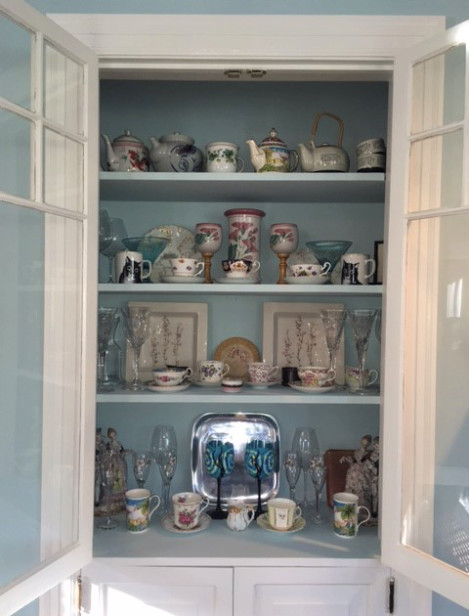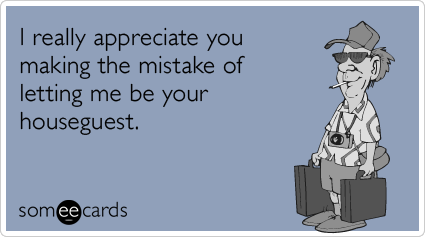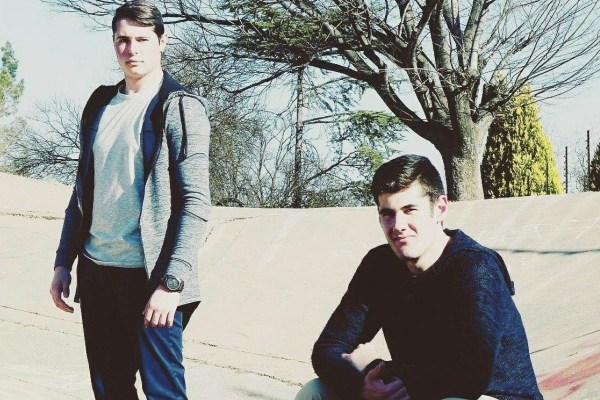
We’ve all heard of setting ourselves up to fail. It’s what happens when we’re gung-ho about doing something right now even though any remotely rational person would say, “Um, honey? Maybe this isn’t exactly the right time.”
Like, you’re eight months pregnant with your first child, and you decide that you’re going to take up running now so you’ll have a head start on getting back in shape after the baby comes. You haven’t run since you were in ninth grade and you had to play field hockey in gym class, but really, how hard can it be? One foot in front of the other, except fast. Little kids do it all the time. Plus, people say it’s good for calming your nerves, and if there’s one thing you need right now, it’s calm nerves.
This is when your spouse or partner or friend might say something like, “Wow, that’s really ambitious. Did your doctor say it’s okay?” because they know perfectly well the doctor won’t think it’s okay at all, but at least this way, when the kid is two years old and you still haven’t lost the baby weight, you’ll be blaming the doctor and not them.
Sometimes, waiting helps.

Last week, I announced the start of my 100-day writing challenge. I didn’t want to wait until my schedule was lighter. As I’d announced to the world, there will always be something that interferes with any worthy goal, and it’s important to bulldoze through the obstacles.
It sounded terrific. People encouraged me, told me how much they admired what I was doing.
But I overlooked one tiny detail:
Sometimes, “now” is not the right time to begin.Late Monday night, when I announced the start of my 100-day challenge, I had two briefs to finish the next four days. Both were partially written. One was an appellate court brief that required a substantial appendix with all sorts of pleadings, trial exhibits, transcript excerpts, and other material. It would also involve multiple three-way conversations with the other lawyers in the case, one of which occurred during a meeting that devoured an entire afternoon. The printer, who is a dear friend, told me she needed the brief and appendix by Friday in order to meet the Monday filing deadline.
The other was a post-trial brief for a lawyer whose client had some very specific ideas about what we should tell the judge. That brief had to be finalized and filed on Friday.

By Tuesday night, I knew the challenge was off to a bad start: I counted as “writing” the few edits and posting of the blog post I’d written Monday night.
After that came two consecutive nights where I worked until 4 a.m., took a three-hour nap, and returned to my desk, and I never wrote a word that wasn’t related to legal work.
Thursday, most of the northeast enjoyed a snow day. The rest of us went into our home offices and prayed that the power wouldn’t be knocked out by an errant branch. I took an hour off that afternoon to clear the walk and the driveway, and I came back inside just in time for the next conference call.
Friday dawned clear, sunny, and bitterly cold. A good day to stay indoors, which I did. I delivered the post-trial brief for filing. Then, I hunkered down with the appellate brief.
I’ve written and produced dozens of appellate briefs over the past 20 years. I know precisely what’s involved. Yet somehow, I actually convinced myself that it would only take a couple hours to finish production of a 35-page brief (with table of contents, table of authorities, statement of issues, and myriad citations to the record) and an appendix of nearly 300 pages. Then, I reasoned, I could take the afternoon off.
Clueless as a goose.

Even with my fancy desktop publishing software ($15/month, and worth every penny), it was hopeless. I emailed the appendix to the printer around 3:30, and I called to see how late she stayed open. Four-thirty, she said. It might happen, I responded.
It didn’t.
At 6:18, after a final proofreading, I converted the brief to a .pdf file and sent it to the printer and to my two compatriots. Then, I bundled up and went out to clear away the snow that had fallen since the prior afternoon. I came inside, showered, fed the cats, and settled into bed with a tray and Breakfast at Tiffany’s.
This is not to suggest that I never thought about my writing challenge during that week. At one point, I opened an email about a writing conference, and sadness twisted my gut because I wanted so badly to focus on creativity and joy, not easements and condominiums. I wanted to listen to craft talks, not online continuing legal education seminars. I wanted to taste language and consider its worth, not figure out how to rearrange someone’s insisted-on insertion so that it was, at a minimum, grammatically correct and marginally coherent.
Maybe I could have picked up the thread on Saturday. Instead, I returned to my other abandoned project, unpacking stored items and putting things away. By the time it occurred to me to go to bed, it was two o’clock. China and crystal once again graced the shelves of the china cabinet. A contractor bag stuffed with bubble wrap and packing material waited to go out to the trash can. Candlesticks and other knickknacks returned to their places on shelves and mantel. Home looked more like home.

As I write this, it occurs to me that these items are, in their way, like the kind of writing I want to do: not merely useful, but beautiful. Tea in a styrofoam cup evokes images of haste and distraction—meetings, drive-throughs, food trucks—but that same tea served in an antique teacup with matching saucer creates a moment of serenity and focus. Bone china, so fragile, requires one to slow down and sip, while disposable cups are for speed, efficiency, functionality. Both perform the same function—holding tea—but one is serviceable while the other elevates the experience to something special.
This is not to denigrate the serviceable. It has its place. The briefs were serviceable. The lawyer for whom I wrote the post-trial brief said it was one of the best I’ve ever written for him. He wasn’t talking about the artistry, but the advocacy. The goal of a brief is to persuade, not to dazzle with literary style. (One could fairly argue that if the judge comes away from a brief thinking about how it’s written instead of what it says, the brief writer has failed.) Serviceable is good. It puts food on the table, gas in the tank, clothes on the body.
Yesterday, when I went out to do errands, I stopped for lunch at Sadler’s Ordinary, as quaint a New England restaurant as ever I’ve seen. I could have picked up yet another quick turkey sub at the nearby Subway, but I was heading down to Marlborough anyway, and Sadler’s was in the same complex as the consignment furniture shops where I would shop for a much-needed bookcase.
And so, instead of merely satisfying hunger, I dined. Maple-glazed salmon, steamed green beans, butternut squash, and a fried patty of sweet potato, parsnip, and bacon hash. A glass of chardonnay was the perfect accompaniment. I sat at a small wooden table near the fireplace and read as I savored my lunch and soaked in the atmosphere.

The book was John McPhee’s Draft No. 4: On the Writing Process, a Christmas gift from a writer friend. I’d expected it to be a straightforward craft book. Instead, as the fire crackled and my fellow diners chatted, McPhee wove accounts of his experiences into suggestions about how to structure a piece, showing even as he told. As I relished my entrée, I contemplated the notion of writing something that does more than just get the job done.

Now, as I write this, I’m aware of what I’m writing and how. I want my 100-day challenge to consist of more than simply slapping words on a page so I can put a W on the calendar to memorialize a day when I wrote. As far as I can, I want to work on the craft—the art—of composing with words.
I know there will be roadblocks. That’s why it’s called a 100-day challenge. If it were easy, it would be a 100-day thing. As my riding teacher used to say, if it were easy, everybody would do it.
I may not make it this time, either. But failure instructs. One thing I’ve learned already is the importance of giving myself the best start I can.
Day one, again: check.

- More





